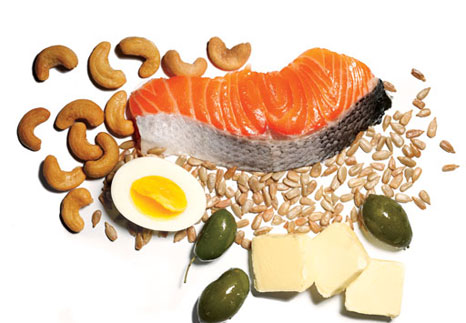There are four types of fats: monounsaturated fats, polyunsaturated fats, saturated fats and trans-fats.
Monounsaturated fats and polyunsaturated fats are known as the ‘good fats’ because they help prevent diabetes, heart disease, cancer, obesity, muscle and joint pain, inflammatory conditions, lower cholesterol and blood pressure.
Monounsaturated fats include olive oil, Sunflower oil Peanut oil, Sesame oil, Avocados, Olives, Nuts (almonds, peanuts, macadamia nuts, hazelnuts, pecans, cashews) and peanut butter
Polyunsaturated fats include soybean oil, corn oil, safflower oil, walnuts, sunflower seeds, sesame seeds, pumpkin seeds, flaxseed, soymilk, coconut oil, soymilk, fatty fish (salmon, tuna, mackerel, herring, trout, sardines), palm oil and tofu.
Trans-fats are formed in a process called hydrogenation which converts liquid fat into solid fat to lengthen its shelf life. And should be avoid at all costs. Trans-fat is known to clog arteries, raises LDL (bad cholesterol), lower HDL (good cholesterol) and increase your risk of heart disease.
Trans-fats include baked goods, cookies, doughnuts, muffins, cakes, pizza dough, Packaged snack foods (crackers, microwave popcorn, chips), margarine, fried foods (french fries, fried chicken, chicken nuggets, breaded fish, hot dogs) lollies and chocolate.
Saturated fats are an essential part of our diet and often unavoidable, however you must limit your consumption in order to maintain a balanced diet. Saturated fats are harder to identify since some can have health benefits as well as potentially negative effects on cholesterol. These include fatty meats (sausages, salami, ham, bacon), fatty cuts of meat (beef, lamb, pork) and full fat dairy (milk, cheese, cream, yoghurt).


Leave A Comment